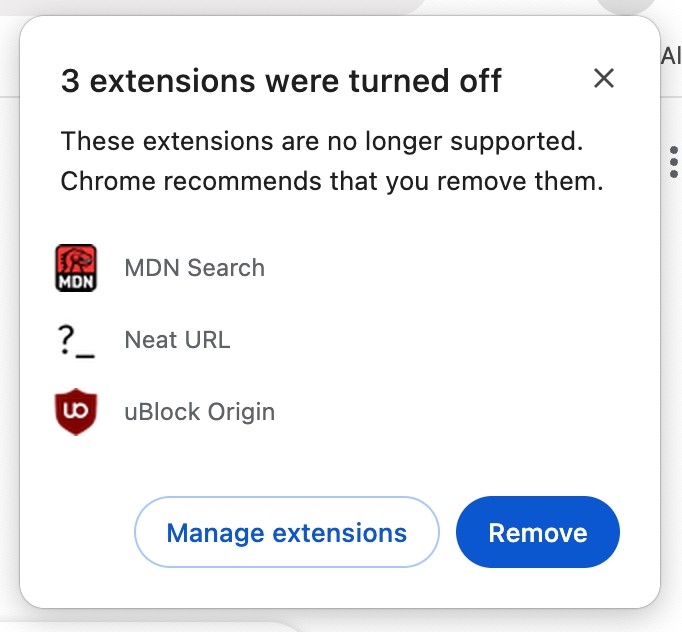
In a move that has sparked concern among internet users, Google has reportedly started automatically disabling the popular ad-blocking extension uBlock Origin in its Chrome browser.
Raymond Hill, the developer behind uBlock Origin Lite, shared this development on social media platform X (formerly Twitter). He stated, "The deprecation of uBO in the Chrome Web Store has started," confirming fears that Google was moving to restrict ad-blocking capabilities in Chrome.
This action appears to be part of Google's transition from Manifest V2 to Manifest V3, a change in Chrome's extension framework that has been in the works for some time. While Google claims this shift is aimed at improving security and performance, critics argue it significantly hampers the effectiveness of ad-blocking extensions.
Users have reported seeing messages from Chrome recommending the removal of uBlock Origin and other extensions, labeling them as "no longer supported." This has led to frustration among many Chrome users who rely on these tools to manage their browsing experience.
Google's spokesperson, Scott Westover, has stated that most actively maintained extensions in the Chrome Web Store already use Manifest V3, including popular content filtering extensions. However, this has done little to assuage concerns about the impact on user choice and browsing freedom.
The move aligns with Google's recent efforts to limit ad-blocking capabilities across its platforms, including YouTube. As a result, many users are considering alternative browsers that are more accommodating to ad-blocking extensions.
For those wishing to continue using robust ad-blocking tools, switching to browsers like Brave or other Chrome alternatives may become necessary. As this situation develops, it remains to be seen how users and developers will adapt to these changes in the Chrome ecosystem.